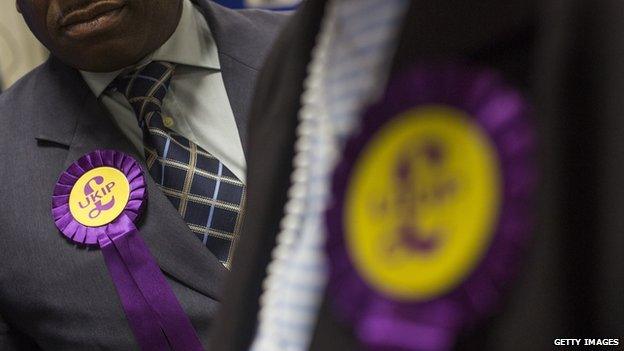The UKIP earthquake - first tremors
- Published

Nigel Farage predicted a political earthquake.
From the very first result - a council ward in safe Labour Sunderland - the tremors could be felt. UKIP secured 30% of the vote in an area where it hadn't even run before.
It was soon clear that we were witnessing something very significant - the emergence of a fourth national political force capable of disrupting the hopes and plans of each of the established three parties.
The Farage factor has cut Tory support the most - Essex man has shown signs of becoming UKIP man.
It has, though, also damaged Labour - challenging them in their northern heartlands and undermining Ed Miliband's hopes of winning in key election battlegrounds in the Midlands.
The Liberal Democrats have watched in despair as the protest votes they used to harvest have gone elsewhere.
It is worth remembering that once every vote is counted UKIP will not run a single council, they will still have far fewer councillors than their rivals, they will not, of course, have an MP but - in the words of one Labour council leader - they will have caused mayhem.
And that's before a single vote has been counted in the European elections.
PS
It is also worth remembering that the Farage charm does not seem to be swaying the capital. UKIP has only put up candidates for 25% of London's seat and it is scoring significantly lower than it has elsewhere.
Labour, on the other hand, seem to be doing better in the capital. They're delighted to have seized control back of Hammersmith & Fulham which had become a Tory pin-up council to match Westminster and Wandsworth. They have high hopes of taking Merton and Redbridge.